WIRE COST Action
1st Training School
“Waste biorefineries: feedstocks, conversion technologies, products and applications”
15-19th July, Lisbon & Portalegre, Portugal
Welcome to WIRE´s 1st Training School, an initiative aimed at fostering collaboration and advancing expertise in the field of biorefineries and the bio-based economy. Throughout this intensive program, participants will delve into the core themes of the WIRE COST Action, spanning the intricate realms of raw materials procurement (WG1), innovative biorefinery conversion technologies (WG2), diverse biorefinery applications (WG3), and strategic communication and dissemination strategies (WG4). With a focus on European funding schemes, participants will gain invaluable insights into accessing vital resources to propel their research endeavors forward. Additionally, sessions dedicated to the dissemination and exploitation of scientific results will equip attendees with essential skills for effectively translating research findings into real-world applications. Furthermore, discussions on European patents and intellectual property rights (IPR) will illuminate the complexities of protecting and commercializing innovative technologies in a rapidly evolving landscape.
Join WIRE on this journey as we harmonize knowledge, catalyze innovation, and pave the way towards a sustainable bioeconomy future!
Paulo Brito, Action Chair
Training School evaluation methods here
Information on location, accomodation and transportation can be found here
Meet the trainers
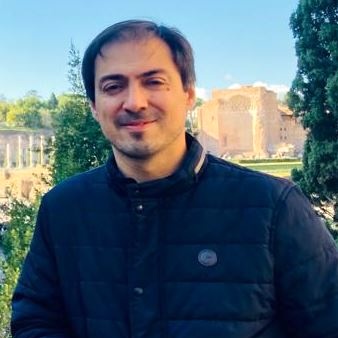
Alexandre Gaspar
Working at The Navigator Company (since 2007), a Pulp & Paper company, currently on Industrial Scale-up & New Business Development, which implies assessing possible new business models for the company, checking their technical and economic feasibility.
Previous at Navigator had carried out works on Technology Consulting (pulp & paper industrial process optimization, overcome process bottlenecks, new investments / revamps payback) and R&D Projects Manager, coordinating, launching national / international projects related to bio refineries ideas to be settled at cellulose pulp mills.
Before Navigator I have worked at a company producing steel molds for plastics injection, carrying out injection molding tests for quality check and customer support (2006)
Along 2005 – 2006 had worked at Sweden, on a pulp and paper company, undertaking consulting work for pulp mills and forest divisions located at China, Brazil, Scandinavia and Portugal, as well overcome bottlenecks on a local pulp mill.
First professional experience was held at the ceramic industry (2005), on a company producing ceramic tiles for floors and wall, being involved at the productive process.
As education background, I’m a chemical engineer graduated at Aveiro University (2004), followed by post graduations on management at Coimbra University (2009), and more recently at ISEG executive education school (2023), as well a post-graduation on energy management (ways of production, distribution, audits, efficient usage) (2012). Besides these longer graduation programs, I have undertaken shorter graduation related to start-ups acceleration programs, negotiations, communication and organizational behavior, projects management, on entities as Catholica Business School, Nova Business Scholl, Beta-I innovation.
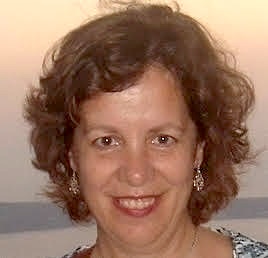
Ana Luísa Fernando
Ana Luísa Fernando is an Associate Professor at Universidade Nova de Lisboa, NOVA School of Science and Technology, Portugal. Researcher at MEtRiCS, Mechanical Engineering and Resource Sustainability Center, hosted by Universidade do Minho and Universidade NOVA de Lisboa. Graduated in Applied Chemistry (UNL), in 1990, with a MSc in Food Technology/Quality (1996, UNL) and a PhD in Environmental Sciences (2005, UNL).
She has been working with energy crops for more than 30 years, with special interest on studies related with the Sustainability of energy crops production (use of marginal land; efficient use of water and mineral resources; environmental impact assessment studies to detect options for systems improvement). Parallel to those activities, she has also been working in the field of Biobased Materials, by testing natural compounds extracted from plants into biopolymers / Biobased products.
Supervision: 9 PhD thesis (concluded), 10 PhD underway, 121 MSc thesis (concluded), 76 Graduation thesis (concluded).
She is also coordinating nationaly the H2020 and HORIZON projects GOLD, MIDAS and IASIS. Author and co-author os several publications (h index = 35).
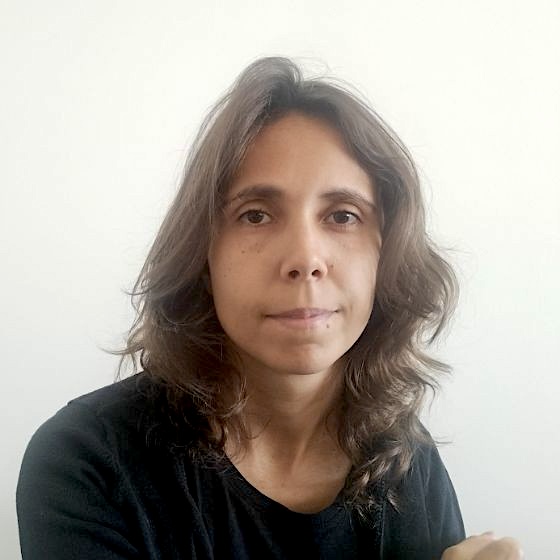
Bruna Rijo
Bruna Rijo is an Invited Assistant Professor at Portalegre Polytechnic University and a Researcher at the Research Center for Endogenous Resource Valorization (VALORIZA), studying the valorization of waste to produce renewable gases. She received a MSC degree in Chemical Engineering from IST, University of Lisbon, in 2013. For her MSc thesis, she moved to IFP Energies Nouvelles (IFPEN) in Lyon, France, where she developed a thermal model in a fluidized bed reactor using Chemical looping combustion (CLC) technology. In 2018, she received a PhD in Refining, Petrochemical, and Chemical Engineering from IST, University of Lisbon. Her PhD project aimed to create a model for an industrial acetylene hydrogenation reactor based on plant data from REPSOL Polímeros olefin production unit in Sines. After finishing her PhD, she worked as a researcher at CERENA (in PiCE project – Plastics in Circular Economy) on the development of a technological process for recovering materials and/or energy from biomass and plastic waste to produce basic chemical products and solid waste with multifunctional properties, biochar/char. These products were created through thermal/catalytic pyrolysis and/or gasification processes. As a result of her research activities, she has contributed more than 20 publications in peer-reviewed journals, mostly Q1 journals, and more than 15 presentations at conferences (more details at http://orcid.org/0000-0001-6720-6132, https://www.cienciavitae.pt//pt/F212-6F13-4A64).
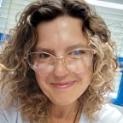
Carla Rodrigues
Carla Rodrigues is a dedicated and highly experienced Laboratory Technician with over 20 years of of hands-on experience in conducting a wide range of chemical analyses, managing laboratory operations, and ensuring compliance with quality standards in an analytical facility of a research and academic institution – Analysis Laboratory / LAQV@REQUIMTE. Is a Chemistry PhD student at NOVA School of Science and Technology (FCT|NOVA), has a MSc in Biotechnology (2012 ¿ FCT|NOVA) and a degree in Applied Chemistry (1995 ¿ FCT|NOVA). The work in instrumental analysis started in 1995 with a laboratory technician scholarship in a Biochemical Engineering group and continuing later at the analytical laboratory of LAQV@REQUIMTE, acquiring solid knowledge of Atomic Spectroscopy (ICP-OES and AAS), Elemental Analysis, Differential Scanning Calorimetry (DSC) and Thermogravimetric Analysis (TGA). Since 2002, works at the Analysis Laboratory (LAQV@REQUIMTE – FCT|NOVA), which provides analytical services to public and private institutions, and to industry, and where supports research projects and teaching activities, including MSc and PhD thesis supervision.
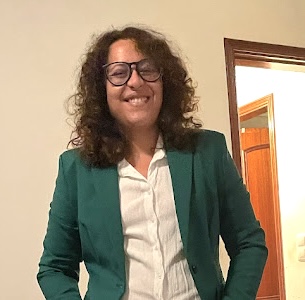
Catarina Nobre
Graduated in Biochemistry (FCT-UAlg), MSc in Energy and Bioenergy (NOVA-SST), PhD in Energy and Bioenergy (NOVA-SST). Completed a post-doc in the area of effluent bioremediation (NOVA-SST). Currently, she is an Auxiliary Researcher at VALORIZA – Research Center for the Valorization of Endogenous Resources, at the Portalegre Polytechnic University (PPU), and she’s collaborating in 9 European projects (coordinating one of them) and 2 national projects. She’s also the Science Communication Coordinator of WIRE COST Action (CA20127). Her teaching activities at PPU include “Hydrogen Safety and Handling” in the postgraduate program in Hydrogen, and “Integrated Waste and Environmental Management” in the postgraduate program in Renewable Energies and Environment. Her main research interests are thermochemical conversion processes (e.g., gasification, pyrolysis, and hydrothermal processes) applied to lignocellulosic biomass waste, municipal solid waste, and waste-derived fuels, and more recently, the production of renewable gases (syngas, hydrogen and biomethane). As a result of her research activities, she has contributed to more than 90 publications, including peer-reviewed scientific articles, book chapters, conference papers, conference abstracts, theses, and posters (more details at https://orcid.org/0000-0001-5733-902X).
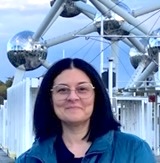
Cecilia Mateos Pedrero
Cecilia Mateos is an experienced researcher in the field of heterogeneous catalysis and chemical processes where she has more than 40 scientific papers and 1 patent. She received her PhD in Chemical Engineering from the University Catholic of Louvain in 2007. She has been intensively involved with the development of renewable gases in Portugal, working as a coordinator of this area at the BIOREF Collaborative Laboratory for the past 4 years. She is currently a senior researcher at the Polytechnic University of Portalegre, where she combines her research activities with teaching in the field of renewable gases and bioenergy.
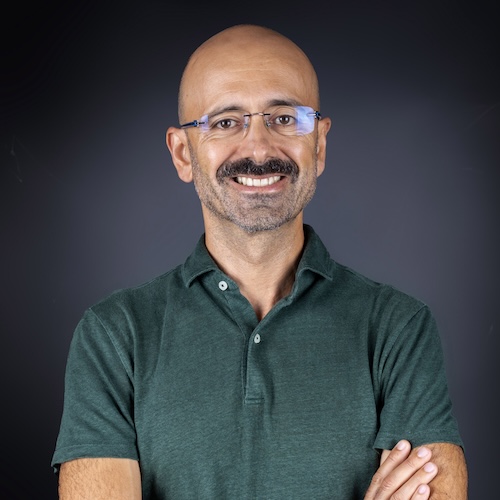
Diogo M. F. Santos
Diogo M.F. Santos is an Invited Assistant Professor at Instituto Superior Técnico (ULisboa, Portugal) and an Associate Researcher at CeFEMA, studying electrodes and membranes for fuel cells and electrolyzers. D.M.F. Santos has authored over 200 publications; his current h index is 36. He has been listed since 2020 on the “World’s Top 2% Scientists list” of Stanford University for the impact of his research. He has presented over 80 oral communications and 80 posters at international conferences. His main research interests are related to electrochemical energy conversion and storage. He is the leader of “WG4. Communication and Dissemination” of WIRE COST Action.
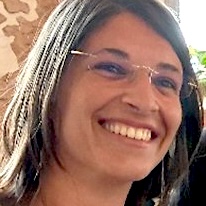
Dora Almeida
Dora Almeida is an integrated researcher at VALORIZA – Research Centre for Endogenous Resource Valorization, Portalegre Polytechnic University, and a collaborator researcher at CEFAGE – Center for Advanced Studies in Management and Economics, IIFA, University of Évora, and holds a PhD in Management from the University of Évora – research topic: cryptocurrencies. She is graduated in Physics and Chemistry, post-graduated and with a master’s degree in applied economics and management from the University of Évora. She has been a Professor of Physics and Chemistry and Operations and Banking Management, and at the same time, has been a Business Account Manager at a Portuguese private bank. At present, she is also a Guest Assistant Professor at the University of Évora. Her main research fields are financial markets and econophysics. She is a co-author of some papers and conference presentations. She is an academic reviewer of some scientific journals and guest editor in some special issues/research topics (e.g., “Cryptocurrency behavior under econophysics approaches” for the Entropy journal, from Multidisciplinary Digital Publishing Institute, and on the “The complexity of cryptocurrency markets and sustainable behavior: the econophysics approaches” for the Frontiers in Environmental Economics, Frontiers). (https://orcid.org/0000-0003-0224-8635).
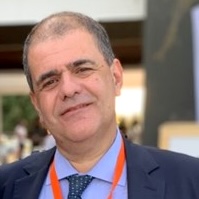
George Skevis
Dr George Skevis is the General Manager of CLEOS, a collaboration between three leading Greek shipping companies, GasLog, Drylog and Olympic Shipping, with the purpose to perform Research and Development, and offer advisory services regarding fleet decarbonization. Dr Skevis is a Mechanical Engineer with 30 year’s experience in fuel and combustion systems research and development, carbon capture storage and utilization and energy systems modelling and simulation. He has 20+ years’ experience in managing EU and industrial R&D projects in the fields of transport, energy and the environment, he is the author of numerous scientific papers, technical publications and reviews on fuels and energy and he is the national representative in relevant professional organizations and scientific networks. Prior to joining CLEOS, George was a Senior Researcher and Research Team Leader in CERTH, the leading R&D centre in Greece and has served in multiple research and academic roles. He is the Vice-Chair of the WIRE COST Action and has been the Vice-Chair of the SMARTCATS COST Action. He holds a Ph.D. in Mechanical Engineering from Imperial College London on combustion chemistry.
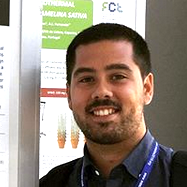
João Pires
João Pires has a degree in “Materials Engineering” and a master’s degree in “Technology and Food Safety”, specializing in the development of new, innovative, bio-based packaging for packaging perishable foods. More recently, he completed his PhD in Bioenergy, specializing in bioproducts and bionanocomposites, working on the recovery of agro-industrial waste to isolate cellulose nanocrystals. During his time as a researcher at Universidade NOVA de Lisboa he was involved in several ID projects, representing the MEtRICs research group and I was co-founder and member of the CubicB-Biomass Research Group for Bioenergy and Bioproducts. From 2018 until the end of his doctorate, he was a guest professor in laboratory classes in the master’s degrees “Bioenergy” and “Technology and Food Safety” and supervised and/or co-supervised 11 works between bachelor’s and master’s theses. As his first experience outside academia, he was hired in 2023 as Head of the Bio4Plas Research & Development Team, where my mission is to plan, manage, monitor R&D projects resulting from national (3 PRR) and international (1 Eurogia and 1 Horizon Europe) and in the company’s internal R&D projects with direct contact with customers. I also have a duty to contribute scientific knowledge through research and writing of state of the art, leading the development and submission of future ID projects.
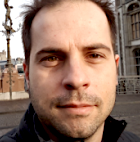
Nuno Costa
Nuno Costa is a chemical analyst in an analytical facility of a research and academic institution – Analysis Laboratory / LAQV@REQUIMTE. He is also a Chemistry PhD student at NOVA School of Science and Technology (NOVA FCT). He has a MSc in Chemical and Biochemical Engineering (2014 – NOVA FCT) and a degree in Chemical Engineering (2006 – NOVA FCT). His journey in instrumental analysis started in 2007 with a technical research scholarship in a Biochemical Engineering group and continuing later at the analytical laboratory of LAQV@REQUIMTE, acquiring solid knowledge of HPLC; Ion Chromatography; GPC/SEC; GC; Textural and Structural material characterization techniques such as Gas Porosimetry, Mercury Porosimetry, XRPD and FT-IR. Experience in LC/MS, ICP-OES, DSC, and spectrophotometric methods. Since 2009, he has worked at the Analysis Laboratory (LAQV@REQUIMTE – NOVA FCT), which provides analytical services to public and private institutions, and to industry, and where he also supports research projects and teaching activities, including MSc thesis supervision.
Who can apply?
Early-Stage Researchers (ESR) and PhD students, involved in COST Actions. Please note that applying for the training school does not automatically guarantee access to it.
Funding:
Participants affiliated to an academic institution or company from a COST Full Member Country, a COST Cooperating Member Country or from a COST Near Neighbor Country may apply for reimbursement. The exact value depends on the expected travel and accommodation costs. The maximum travel amount is 250 €, and Portugal’s daily allowance rate is 195 €.
How to apply?
- All candidates must first create an e-COST profile.
- Before applying, please carefully read the rules regarding grant eligibility and financial support in the Annotated rules for COST Actions (https://www.cost.eu/uploads/2022/12/COST-094-21-Annotated-Rules-for-COST-Actions-Level-C-V1.3.pdf).
- Apply for the grant by filling the below Google Forms, and uploading CV, motivation letter and a recommendation letter: https://docs.google.com/forms/d/e/1FAIpQLSdvaXI7EYTYForltAOEo7Y2gMdm7Mhjn_vzoxzvBlpJb9UiAg/viewform?usp=sf_link
- Participant evaluation and selection will be at the discretion of WIRE’s Core Group, considering a balance of ITC countries and gender to ensure equality.
- Candidates will receive a notification informing whether they have been accepted (grant awarded).
- Selected participants will be sent an e-COST invitation to the training school which must be acceptedprior to the event.
Important dates
Deadline for application: May 28th, 2024
Notification of acceptance & sending of e-COST invitations: June 4th, 2024
Confirmation of participation (acceptance of e-COST invitations): June 10th, 2024
After the training school:
- All attendees shall submit a completed online travel reimbursement request via e-COST within 15 calendar days after the end date of the training school.
- Before submitting the claim, attendees should read carefully the COST Actions’ Travel Reimbursement Rules (https://www.cost.eu/uploads/2023/01/COST-Travel-Reimbursement-rules-November-2022.pdf)
- All attendees shall upload legible copies of all invoices / receipts and relevant supporting documents onto e-COST and archive the original invoices / receipts for four (4) years after the end of the Grant Period in which the meeting takes place.
